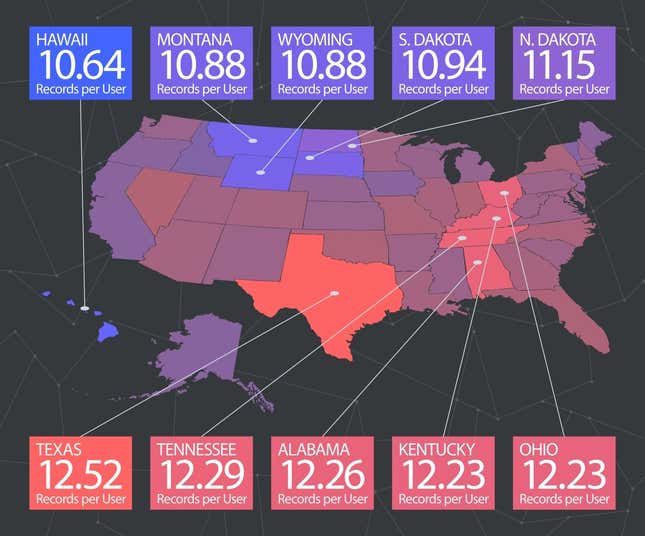
Safe Shepherd is a company that searches the web for all the public records available on Americans, and then presents them in a dashboard. Try it for yourself—it’s free—and the results are almost guaranteed to be unnerving. The information is mostly innocuous, and includes your address, phone number and email, but the fact that it’s public is more than enough to create a healthy stream of business for Safe Shepherd, which, according to founder Robert Leshner, is “lightly profitable.”
Safe Shepherd isn’t very big. Founded in 2011, it’s just seven people and has received only a single round of seed funding, from 500 Startups and OCA Ventures. Even so, it’s managed to nab three large clients—a “people search” engine, a credit-monitoring company, and an anti-virus firm, all of which are using Safe Shepherd’s database and tools to sell their customers their own branded versions of the service. (It won’t say who those clients are.)
Collectively, those clients have used Safe Shepherd to conduct millions of searches on behalf of their customers. The results show that the average American has 12.5 personal records freely available online. For reasons that Leshner can’t begin to explain, the average is higher in the south.
Safe Shepherd lets you find out what’s on the web about you for free if you come directly to its site. But to have your records automatically expunged, it will charge you $15 a month. It has agreements with the main people-finding sites to make this process seamless. Safe Shepherd doesn’t have many competitors, as personal data protection is still a relatively small industry, but they include Reputation.com, which is focused on search engines, and MyID.com, which focuses on removing people from public databases.
Safe Shepherd’s customers fall into three broad categories, says Leshner. First, there are the folks who Google themselves and are disturbed to find that the first page of results contains nothing but offers of background checks and credit reports from sites like Spoke, Intellius and MyLife.com. Then there are folks who simply don’t want their address and phone number plastered all over the web—the 21st-century equivalent of getting an unlisted number. Finally, “There are people who are just afraid of the internet because they don’t understand it as well as you or I,” says Leshner. “It’s like my grandfather, he says ‘I don’t understand the internet and I’m afraid of the internet, so just take me off.'”
Safe Shepherd can’t help with problems like identity theft. But tapping into people’s fears about how they appear online—and this is not to denigrate Safe Shepherd, which is one of the good actors in the often shady world of data brokerage—is a powerful way to run a business. I asked Leshner if someone internet savvy and with a strong presence on the web—like, say, me—needed his service. He responded that, hey, shouldn’t everyone be able to monitor what sites are displaying information about them online? I checked out my own profile, and found that it included 29 records on people-search sites alone. And for a moment at least, I was tempted.